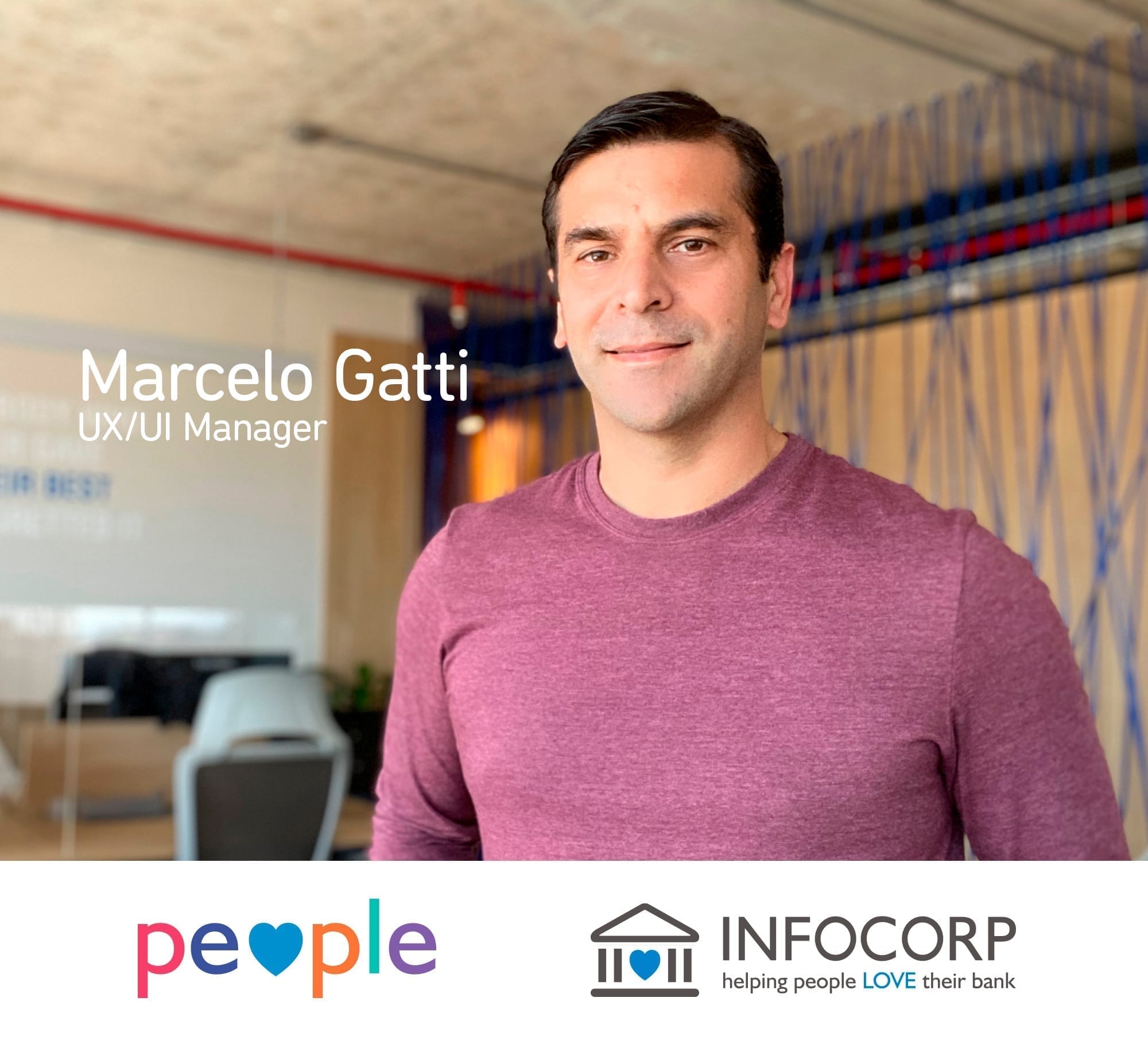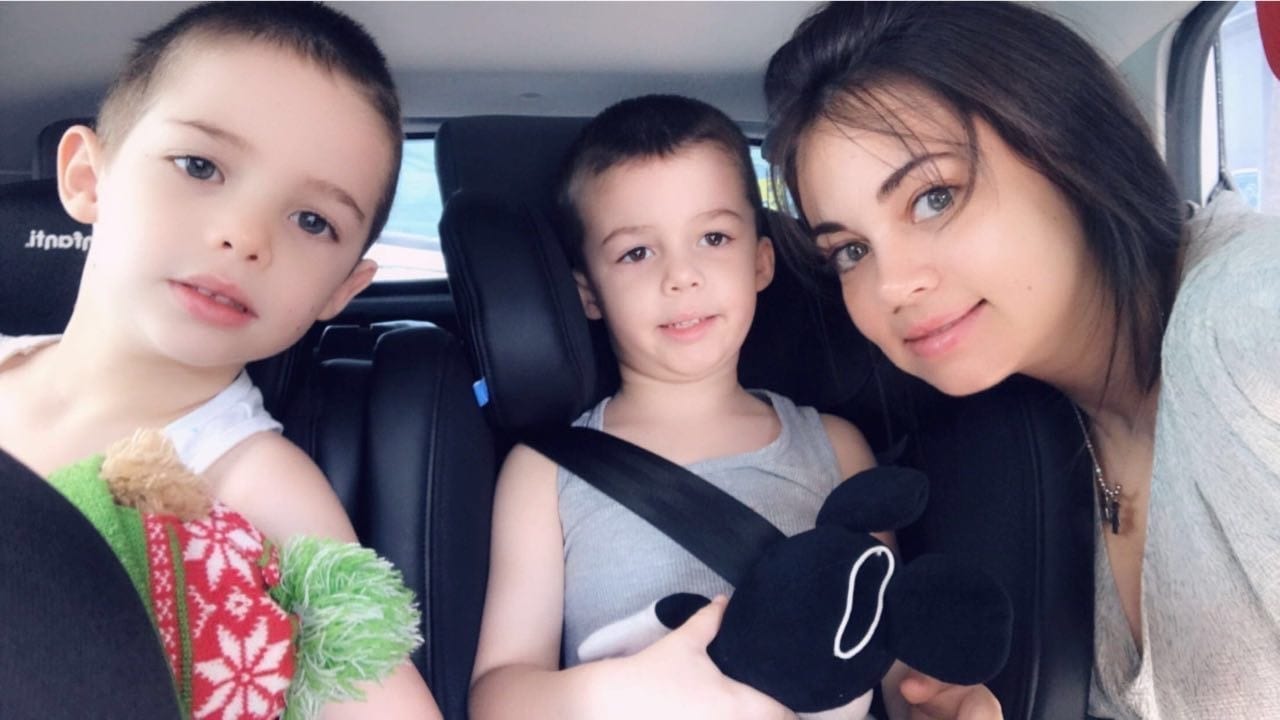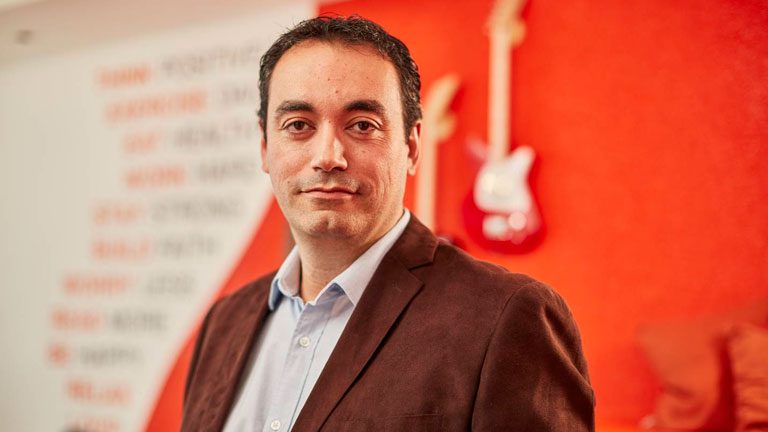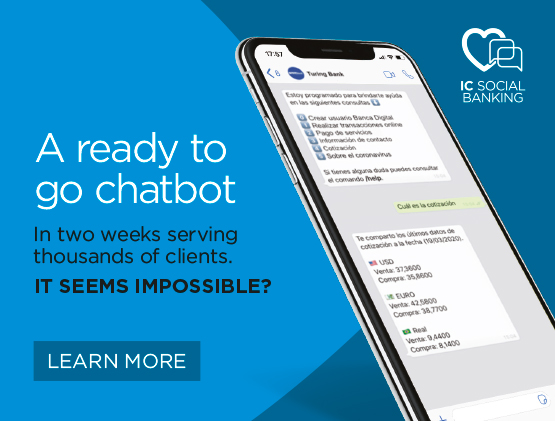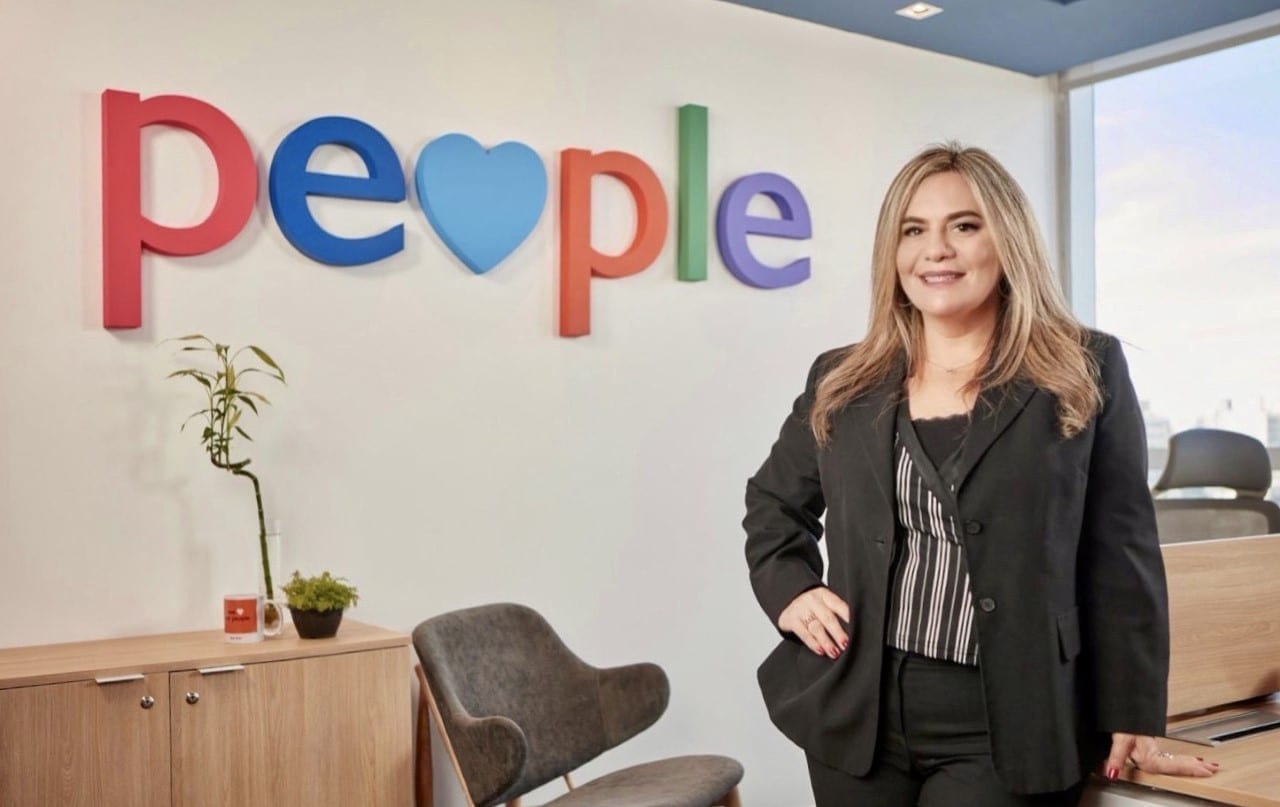
With this phrase, very much appropriated at Infocorp, Elena Rubin, Head of the People department, summarizes how powerful it is to have people within the company doing and proposing things. The entrepreneurial DNA with which Gabriel Colla started the company 25 years ago is as valid today as it was then. Actually, innovation is one of the company’s main values, along with passion, joy, resilience and empathy.
Tell me about Infocorp’s culture and values.
Culture is imprinted with entrepreneurial spirit. We are constantly changing and thinking how to outdo ourselves, how to do challenging things, how to rethink our methodologies, the way we get organized, etc. We have entrepreneurial DNA from our origins and, 25 years after Gabriel Colla created the company, we are still entrepreneurs.
As to values, I’d say that the main one is respect for people and their potential. We encourage empathy, we are resilient, we fall and rise stronger than ever. We seek to innovate, be it in technology, products, or the way we face problems. Collaboration is a value we cultivate. It’s no use being an excellent technician if you are a bad teammate or you are not generous with your knowledge. This type of profiles do not adapt to our culture. We encourage people to do, to propose ideas, to be proactive. There’s a very common phrase in our culture: It’s better to ask for forgiveness rather than permission! It is not a culture that penalizes doing, not even mistakes. We try to learn from our mistakes and move forward. Passion for what we do is another essential aspect of our culture.
How has HR management changed since you were a student?
We are in a world in which the collaborator, employee, or however we call it, is at the center of everything. There are very different situations depending on the industry, activity, type of job, etc., but I’d say that before, people used to stay a lot longer in a company, seeking safety, even when the company didn’t give them everything they needed. Today, people want to be protagonists. If a company doesn’t meet their expectations, they do not hesitate to change jobs. They want to be and stay motivated. Before, changing jobs was associated with instability or lack of commitment. Current times are very far from this. Nowadays, it’s very hard for a person’s career to take place in a single company. Something that was associated with important values means nothing by itself today.
What has been the greatest lesson a collaborator has taught you?
You tend to learn more from pain and mistakes than from success. I can’t talk about a single lesson, but I’m sure I’ve been taught many. Every day I learn from the people I work with. Even when they feel I’m helping them, for example, in a coaching process, they’re actually helping me grow as a professional and as a person.
And the best idea? Any changes you have implemented at work based on suggestions from the collaborators?
Every day someone comes up with a different way of doing things. I’d be unfair if I said there was a best idea. There’s hundreds of ideas across different times and contexts. And most of the best initiatives don’t come from an illuminated person, but from group effort. From a team’s process based on someone’s good idea, which is shaped as a jigsaw puzzle. That’s what’s great about teamwork. It makes 1+1 equal 100 or 1,000.
Tell me about the People Voices initiative. How do you process results and how possible is it to implement the initiatives born from it?
It’s our work environment survey. It’s a measurement of staff satisfaction, which measures 10 different dimensions of work environment through statements. It is an anonymous and voluntary survey for all our offices.
We always heed the survey results and do our best to work on the opportunities for improvement indicated by people. Some initiatives are more feasible than others. Either way, initiatives with a larger impact not only imply listening, but also admitting mistakes and coordinating wills.
Infocorp has offices in Montevideo but also in Colonia and Chile. How is remote working? How do you make those people feel they belong to the company just as much as those in the main offices?
Managing remote teams is challenging. We’ve actually faced many challenges in that direction. Before Covid-19, our goal was for team members from other offices to travel frequently, so that they could visit our Central Office and spend several days interacting with the other team members, which was very useful. The point is being close, knowing the culture, the team’s and people’s needs, and acting accordingly. Now reality has changed. We are all part of a large remote team, regardless of the city you work in. This situation helped us a lot to develop our remote team-management skills, and develop initiatives that support this working modality.
What do you value the most when performing a job interview? How much do you follow your intuition and how much do you rely on information?
In an interview, I value people showing me how they really are. For them to fully know their strengths and opportunities for improvement. For them to acknowledge their weaknesses and bring them up, knowing that they are their biggest challenge. Intuition, if that’s what it is, is a very important part. Perhaps it isn’t intuition, but a mix of knowledge acquired through training (in my case, Psychology), experience, and mainly contact with what the other person sparks in you. Us psychologists usually say that a professional is their own work tool. I think that’s the key.
A resume is important -training, experience, references- but it’s only a part of it. Aspects related to “how,” i.e., the way in which a person manages to exercise that knowledge and experience, are growingly important. The attitude with which they face their tasks, their values, and how they interact with others.
Well, people with an “engineering profile” tend to have more developed analytical and logical thinking skills, but they don’t usually have strong soft skills (for example, communication, empathy) as they are called. My advice would be for them to try and develop these skills. To work on developing their self-awareness, their communication, empathy, and leadership skills. Those are the skills they will surely need the most. Today, companies don’t need the best technician. They need people who are able to join teams, collaborate, share, create with others. Without those skills, technical knowledge loses much of its value.
And a piece of advice you’d give a young person looking for a job?
To try and find their passion and follow it. To find what they can shine in, their unique talent, what they enjoy doing, and not to give up during the process, and to find the way to devote their life to that passion, as hard as it may be.
Let’s talk a bit on a personal level. Is it possible to use your HR knowledge at home, for example when raising your children?
Even though you are always who you are, and you carry your knowledge and experience with you, everything is different as a parent. I remember that my parents had a book series called “School for parents.” Without belittling the contributions of theories on good parenting, practice is better than any theory, and anyone with children can confirm that. You only learn to be a parent by being one. The same thing happens with leadership. You are a leader due to the people you lead, and it’s them who make you a leader.
